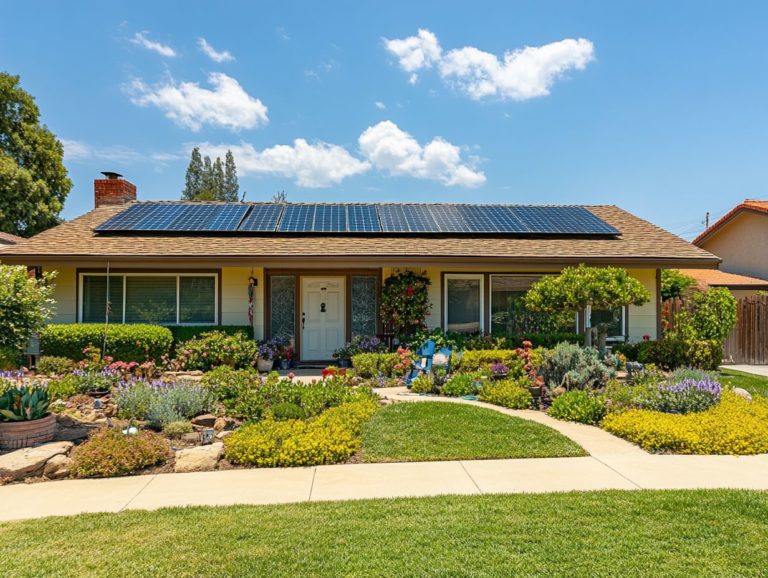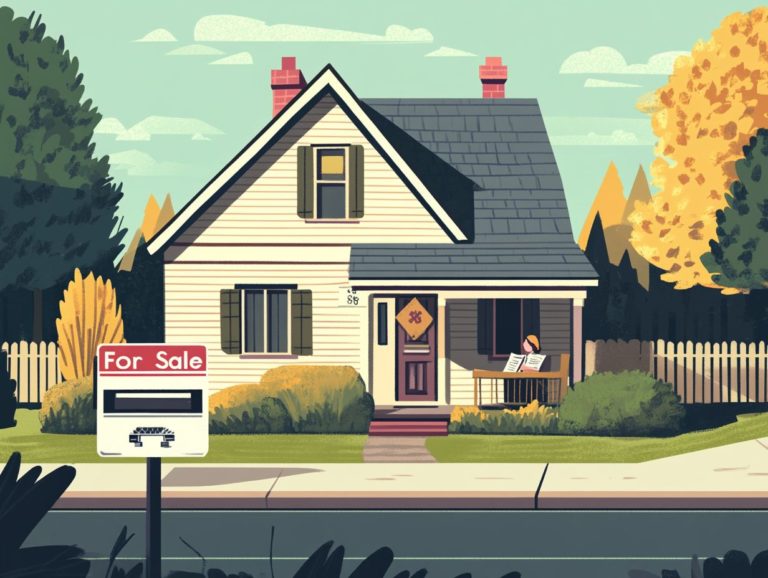5 Mistakes to Avoid When Buying Home Insurance
Navigating the world of home insurance can feel overwhelming, particularly with countless options and potential pitfalls awaiting you. Many homeowners inadvertently make errors that could leave them underinsured or paying far more than necessary.
Discover five critical mistakes to avoid when buying home insurance! This article discusses essential topics, including understanding your coverage needs and capitalizing on available discounts.
Equip yourself with the knowledge necessary to make informed decisions and ultimately save money on your home insurance.
Contents
- Key Takeaways:
- 1. Not Understanding the Coverage
- 2. Not Shopping Around for Different Quotes
- 3. Not Considering the Deductible
- 4. Not Reviewing the Policy Regularly
- 5. Not Asking About Discounts
- What Are the Different Types of Home Insurance Coverage?
- Preguntas Frecuentes
- Cu les son los 5 principales errores que debo evitar al comprar un seguro de hogar?
- C mo puedo evitar subasegurar mi hogar?
- Qu debo buscar al comparar p lizas de seguro de hogar?
- Necesito opciones de cobertura adicional?
- Cu les son las consecuencias de no revisar regularmente mi p liza?
- Puedo hacer cambios en mi p liza de seguro de hogar despu s de comprarla?
Key Takeaways:
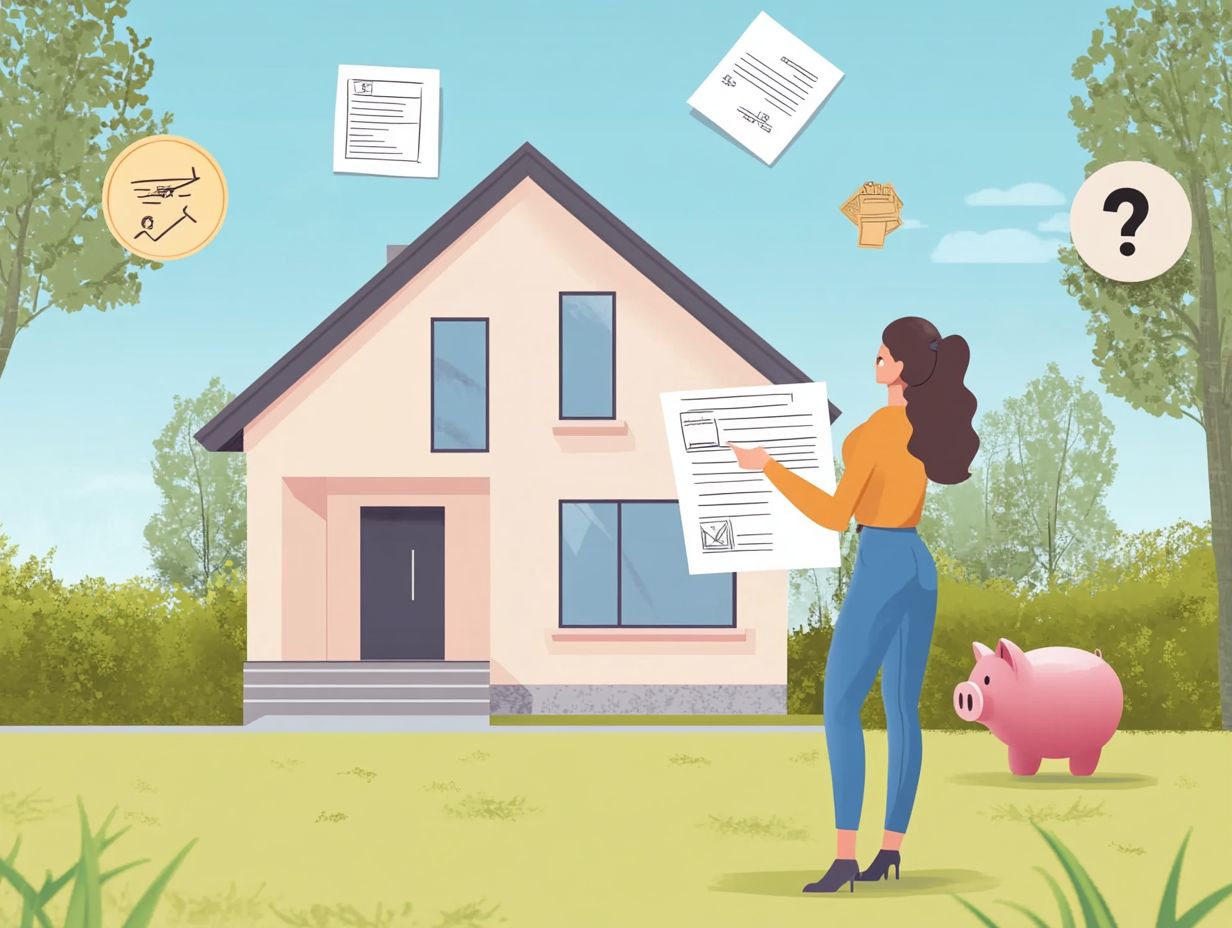
Understand the coverage of your home insurance policy to ensure it meets your specific needs and provides adequate protection.
Don’t make the mistake of assuming all policies are the same. Instead, consider these 5 tips for first-time home insurance buyers to help you shop around and find the best deal for your home insurance.
Consider the deductible amount carefully choose one that you can afford in case of a claim. A higher deductible may lead to lower premiums, but ensure it is still manageable for you.
1. Not Understanding the Coverage
Many homeowners overlook the importance of fully understanding their homeowners insurance coverage. This oversight can lead to significant financial repercussions when disaster strikes or property damage occurs, which is why learning how to avoid common home insurance pitfalls is crucial.
It s essential to grasp the details of your insurance policy, including coverage amounts, types of personal property coverage, and liability coverage. This knowledge is key to effective risk management and financial stability.
Misunderstandings about coverage limits can arise. These limits determine how much protection you get after an incident.
Policy exclusions can leave you vulnerable. Certain damages or events may not be covered, resulting in unexpected out-of-pocket expenses that can catch you off guard.
Understanding the difference between replacement costs and market value is crucial. Replacement costs estimate how much it would take to replace your home, while market value reflects its current selling price.
By staying informed about these aspects, you can sidestep the pitfalls of underinsurance and ensure that you are adequately protected against unforeseen events, especially by following 5 tips for selecting home insurance types.
2. Not Shopping Around for Different Quotes
Failing to shop around for different homeowners insurance quotes can lead to higher premiums and less-than-ideal coverage options. To ensure you’re well-informed, check out 5 things you didn’t know about home insurance, as this ultimately diminishes your financial protection against various risks.
It’s crucial to understand that seeking multiple quotes provides a clearer picture of your insurance options. By collaborating with knowledgeable insurance agents, you can navigate the complexities of policies and tailor your coverage to your specific needs.
This careful comparison not only reveals more comprehensive plans but also uncovers potential savings. Making an informed choice safeguards your property and ensures peace of mind, knowing you’ve selected the best insurance for your unique situation.
3. Not Considering the Deductible
One of the most commonly overlooked aspects of homeowners insurance is the deductible. Understanding this aspect is crucial, as it can significantly impact your insurance premium and shape your financial preparedness during the claims process. For clarity on this and more, check out the 8 common misconceptions about home insurance.
Choosing the right deductible requires thoughtful evaluation of your current financial circumstances and future expectations. A higher deductible often results in lower monthly premium payments, making it appealing for those with a robust emergency fund.
Consider whether you can comfortably access this amount without jeopardizing your financial stability. Striking a balance between these factors is essential; maintaining a sufficient emergency fund is crucial for managing unexpected home repairs.
This ensures that financial constraints won t leave you vulnerable when disaster strikes.
4. Not Reviewing the Policy Regularly
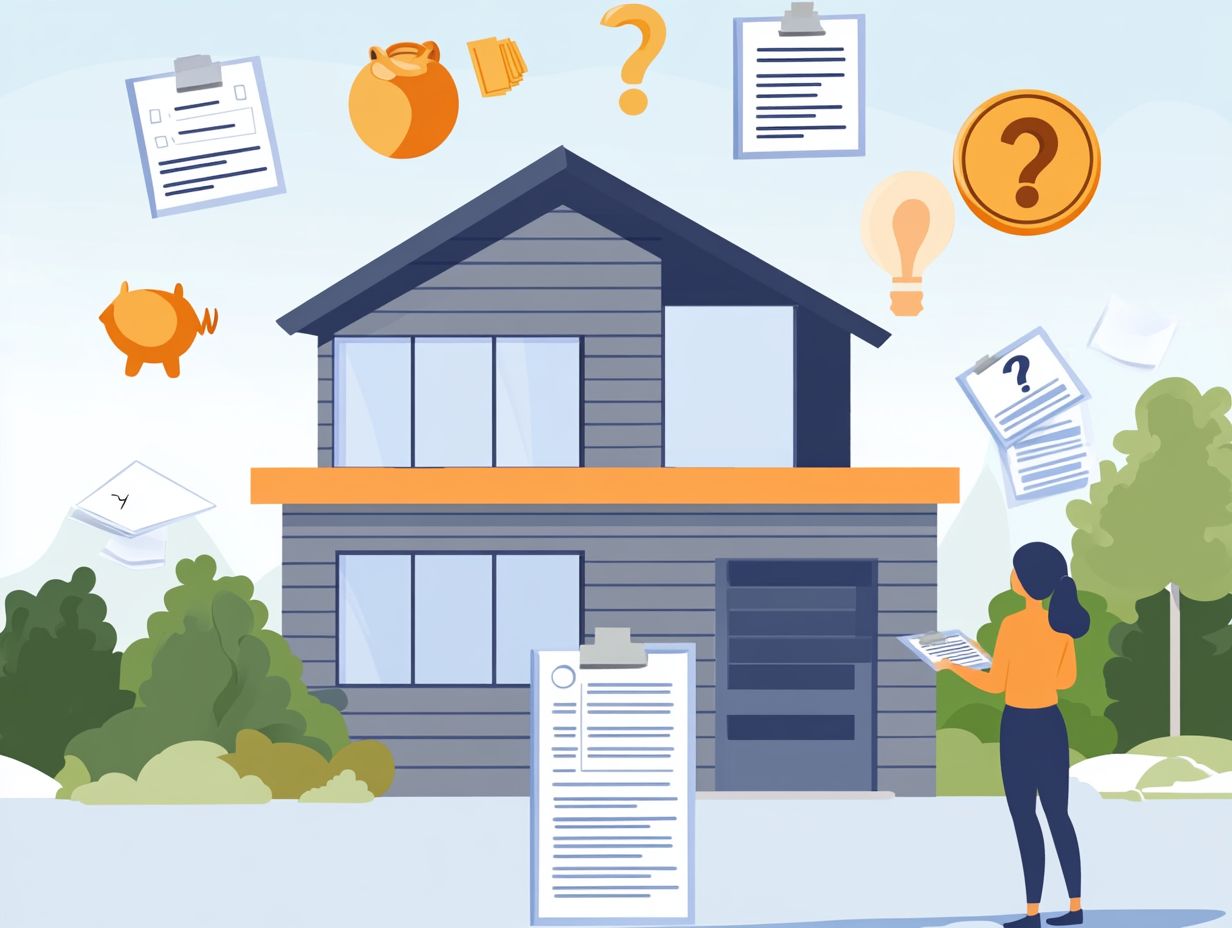
Regularly reviewing your homeowners insurance policy is essential, especially after major renovations or shifts in your insurance needs. This ensures that your coverage limits align with the current real estate value of your home.
Major updates can increase your home’s value. This might leave you vulnerable to coverage gaps, leading to unexpected financial surprises during claims.
Outdated policies can render you vulnerable, resulting in inadequate payouts or outright denials from insurers in unfortunate situations.
It s vital for you to stay informed about your current policy and to routinely consult with insurance representatives who can offer tailored insights based on your evolving circumstances. Taking such proactive measures ensures that your home remains fully protected against unforeseen risks and liabilities.
5. Not Asking About Discounts
Many homeowners often overlook the importance of asking their insurance agents about available discounts. Don t miss out on huge savings! These discounts could significantly lower your homeowners insurance premiums and boost your overall coverage.
This oversight may lead to missed opportunities, such as claim-free discounts that reward those who haven’t filed claims or the chance to combine different types of insurance into one policy for substantial savings.
You can also qualify for discounts by installing security systems, incentivizing safer living practices.
Proactively communicating with your insurance representatives opens the door to exploring these valuable opportunities in depth, ensuring that your coverage meets both your needs and your budget.
By staying informed and asking the right questions, you can truly optimize your insurance experience.
What Are the Different Types of Home Insurance Coverage?
Homeowners insurance offers several coverage options to protect you from various risks. These include flood insurance, contents insurance for your personal belongings, and liability coverage for unexpected incidents.
These essential coverages work together to provide you with comprehensive protection. Dwelling coverage secures the structure of your home, safeguarding it against potential damages from common hazards. Meanwhile, personal property coverage offers financial support for possessions that may be lost or damaged during specific events.
Liability coverage helps protect you if someone gets injured on your home. If you live in an area susceptible to natural disasters, you might also want to consider supplemental coverage options to enhance your protection.
Understanding these components allows you to make informed decisions that are tailored to your unique circumstances.
What Factors Affect the Cost of Home Insurance?
Several factors influence the cost of your homeowners insurance, including the real estate value of your home, the risk exposure based on your location, and the requirements set by your mortgage company for insurance coverage.
The condition of your home is crucial; older homes may not meet current safety standards, which can lead to higher premiums. Additionally, your claim history plays a significant role; if you frequently file claims, insurers may view you as a higher risk, resulting in elevated costs.
Understanding how these factors intertwine is essential, as they collectively shape your overall insurance expenses. By recognizing the impact of these variables, you can make informed decisions that not only protect your assets but also help you seek potential savings on your insurance premiums.
How Can One Determine the Right Amount of Coverage for Their Home?
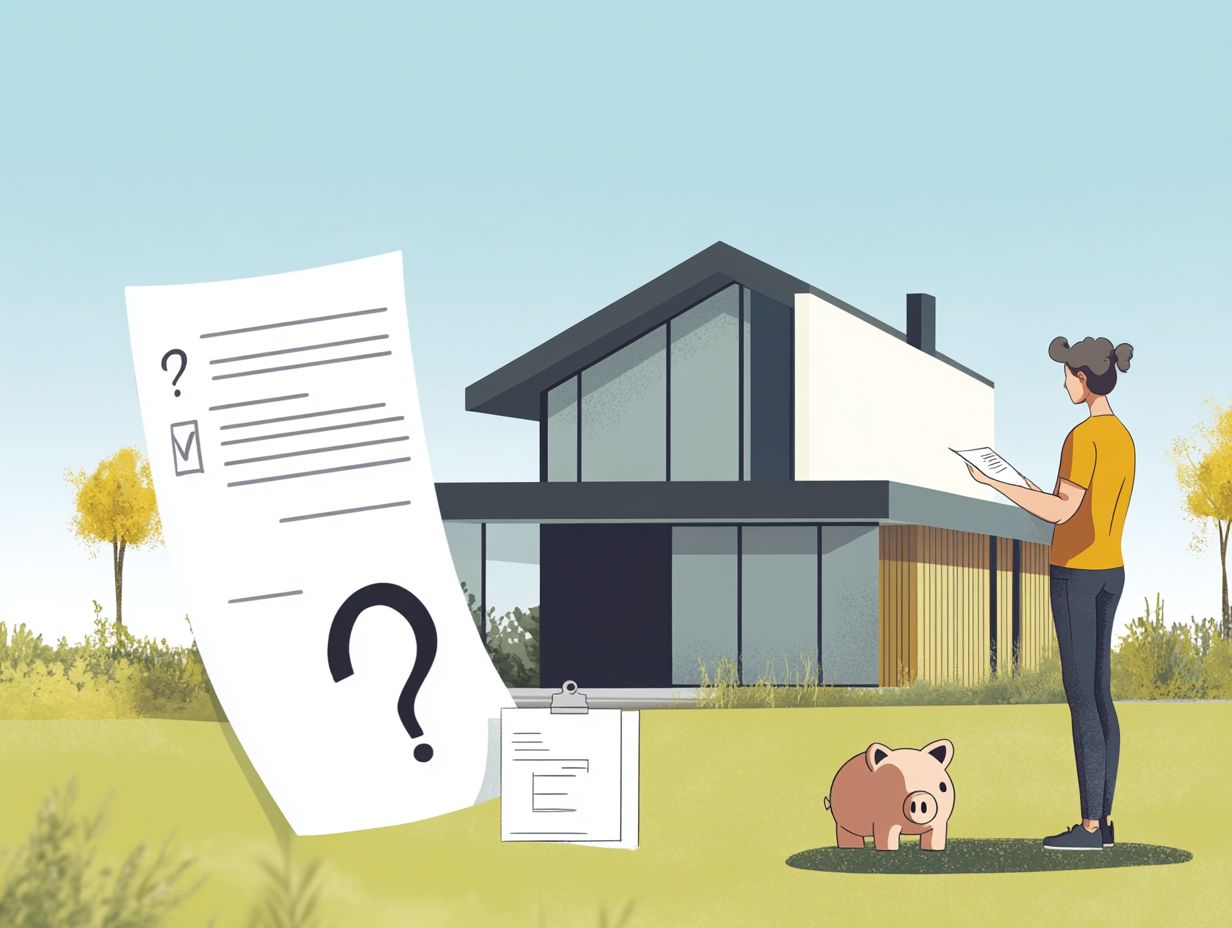
Determining the right amount of homeowners insurance coverage requires a careful evaluation of rebuilding costs and market value. You also need to consider the risk of not having enough coverage, which could leave you vulnerable.
To achieve adequate coverage, evaluate your property’s value thoroughly. Look at local rebuilding costs and current market trends.
It’s wise to maintain a detailed inventory of your possessions. This helps ensure you have enough coverage and simplifies the claims process if you experience a loss.
Seeking guidance from experienced insurance agents can offer invaluable insights tailored to your needs. They can help refine your coverage based on your property and local risks.
What Are the Common Discounts Available for Home Insurance?
Homeowners insurance often offers various discounts that can greatly reduce your premiums. You might benefit from claim-free discounts and bundling discounts when combining multiple policies with the same insurer.
Implementing home safety measures, like smoke detectors and security systems, can unlock additional savings. Many insurers reward loyal customers and offer similar perks to new homeowners eager to protect their investments.
When shopping for insurance, ask about these options. Those savings can really add up!
Not every company advertises all their discounts, so a little inquiry might uncover opportunities for significant cost reductions.
What Are the Steps to Take When Filing a Home Insurance Claim?
Filing a home insurance claim involves several essential steps. Start by documenting the damage carefully with clear photographs and a comprehensive list of lost or damaged items.
Once you have this documentation, contact your insurance provider immediately. Delaying can complicate matters.
Clear communication is key. Ensure that all required forms are filled out accurately and submitted on time.
Be prepared for potential challenges, such as inadequate coverage or disputes about your claim’s value. Keeping a detailed record of all interactions with the insurer will help ensure a smoother claims experience.
How Can One Save Money on Home Insurance?
Homeowners can significantly lower their insurance premiums with several effective strategies. Start by shopping around for competitive quotes, enhancing home security, and being aware of red flags in home insurance providers while adjusting deductibles to fit your budget.
Maintaining a good credit score is essential since insurers often use credit history to gauge risk. Look for available discounts, like bundling policies or installing safety features around your home.
Regularly reviewing your coverage is key. This ensures you’re not over-insured or under-insured, allowing for a more personalized policy.
Practicing effective risk management, like regular maintenance and upgrading older systems, can also lead to lower premiums, making homeownership more affordable.
Preguntas Frecuentes

Cu les son los 5 principales errores que debo evitar al comprar un seguro de hogar?
- No entender la cobertura. Es fundamental comprender bien qu est cubierto y qu no. Revise los detalles de la p liza y haga preguntas si no est seguro.
- No comparar. Compare diferentes p lizas y proveedores para evitar pagar primas m s altas y perder oportunidades de ahorro.
- No asegurar adecuadamente o sobreasegurar. Eval e con precisi n el valor de su hogar y su contenido. Una cobertura inadecuada o excesiva puede ser un error costoso.
- No considerar opciones de cobertura adicional. Considere la protecci n para riesgos espec ficos, como inundaciones o terremotos, que pueden ser importantes para su rea.
- No revisar la p liza regularmente. Revise su p liza con frecuencia para realizar actualizaciones necesarias y evitar estar subasegurado.
C mo puedo evitar subasegurar mi hogar?
Para evitar subasegurar su hogar, eval e con precisi n el valor de su hogar y su contenido. Esto se puede hacer contratando a un tasador profesional o usando calculadoras en l nea que ofrecen las compa as de seguros.
Es esencial revisar y actualizar su p liza regularmente. Aseg rese de que refleje cualquier cambio o mejora en su hogar.
Qu debo buscar al comparar p lizas de seguro de hogar?
Al comparar p lizas, considere las opciones de cobertura, primas, y deducibles. Tambi n investigue la reputaci n y la estabilidad financiera del proveedor de seguros.
Necesito opciones de cobertura adicional?
Depende de sus necesidades espec ficas y de la ubicaci n de su hogar. Algunas reas pueden ser propensas a ciertos riesgos, como inundaciones o terremotos. Eval e los riesgos potenciales en su rea y considere la cobertura adicional en consecuencia.
Cu les son las consecuencias de no revisar regularmente mi p liza?
No revisar su p liza regularmente puede resultar en estar subasegurado o perder descuentos potenciales. En caso de un desastre, podr a no tener suficiente cobertura, lo que podr a llevar a una p rdida financiera.
Revise y actualice su p liza con frecuencia para asegurarse de que refleje sus necesidades actuales.
Puedo hacer cambios en mi p liza de seguro de hogar despu s de comprarla?
S , puede hacer cambios en su p liza de seguro de hogar despu s de comprarla. Tenga en cuenta que cualquier cambio puede afectar sus primas, deducibles y cobertura.
Lo mejor es consultar con su proveedor de seguros antes de realizar cualquier cambio.

